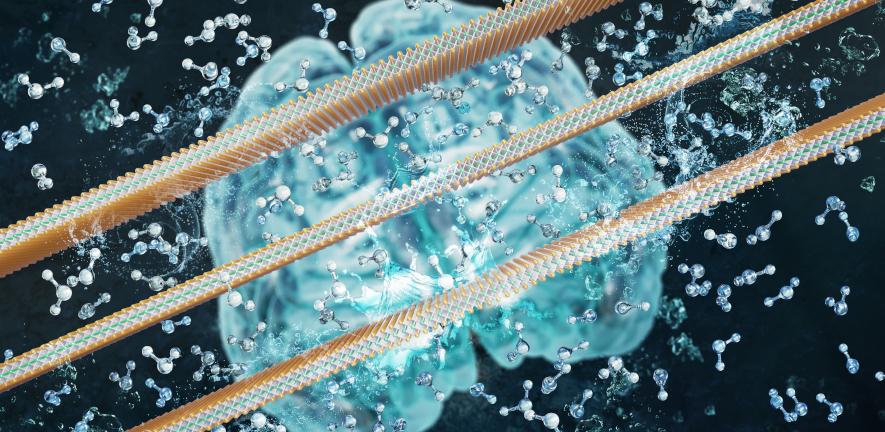
The history of membrane development spans more than 100 years, but has tended to focus mainly on developing new membranes for efficient separation processes in industry. In recent years, some research has aimed at making membranes that mimic biological structures, particularly their 'intelligent' characteristics.
Now, in research published today in Nature, scientists explain how they have developed intelligent membranes that can remember how permeable they were before being exposed to different pH levels. This means the membranes can adapt to different conditions in their environment and, importantly, memorise their state, a feature which can be exploited in many different applications.
"Coming up with simple and effective clean water solutions is one of our greatest global challenges. This study shows that fundamental molecular level insights and nanoscale materials offers great potential for the development of 'smart' membranes for water purification and other applications," said Professor Angelos Michaelides, the 1968 Professor of Chemistry in this department, whose team collaborated with scientists from several universities in a project led by Professor Rahul Nair's group at the University of Manchester.
Memory expression
A phenomenon known as hysteresis is the most common expression of memory or intelligence in a material. It refers to the situation where a system's current properties are dependent and related to its previous state. Hysteresis is commonly observed in magnetic materials. For example, a magnet may have more than one possible magnetic moment in a given magnetic field, depending on the field the magnet was subjected to in the past. However, hysteresis is rarely seen in molecular transport through artificial membranes.
Intelligent membranes
The intelligent transport of molecular species across different barriers is key in living systems, and is possible thanks to the special properties of biological membranes, which can adapt to different conditions in their environment and memorise their state.
In this work, the researchers developed membranes based on a two-dimensional material called molybdenum disulphide (MoS2). They showed that the way ions and water infiltrate the membranes can be regulated by controlling the external pH. The membranes mimic the function of biological cell membranes and display hysteretic behaviour in response to the pH, which means they remember what pH they were exposed to before.
"The memory effects we have seen are unique to these membranes and have never been observed before in any inorganic membranes," said co-first author Dr Amritroop Achari of the University of Manchester.
Applications
The researchers demonstrated that this biomimetic effect could be used to improve autonomous wound infection sensing. To do this, they placed the membranes in artificial wound exudate, which simulates the liquid produced by wounds, and subjected them to changes in pH. The researchers say the new membranes can also be used in a host of other pH-dependent applications, from nanofiltration to mimicking the function of neuronal cells.
Co-author Professor Sir Kostya Novoselov said: "Research in this direction can play a pivotal role in the design of intelligent technologies for tomorrow." Novoselov is the Langworthy Professor in the School of Physics and Astronomy at the University of Manchester and and a professor at the Centre for Advanced 2D Materials, National University of Singapore.
Research
C. Hu, A. Achari, P. Rowe, H. Xiao, S. Suran, Z. Li, K. Huang, C. Chi, C. T. Cherian, V. Sreepal, P. D. Bentley, A. Pratt, N. Zhang, K. S. Novoselov, A. Michaelides, R. R. Nair, pH-dependent water permeability switching and its memory in 1T′ MoS2 membranes, Nature (19 April 2023).

